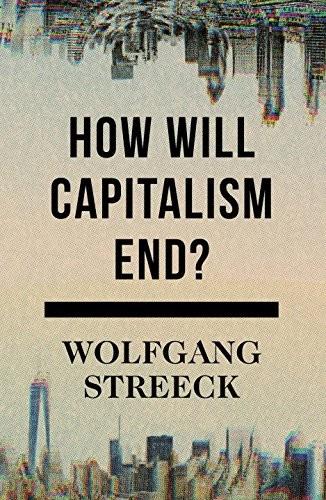
How Will Capitalism End?
by
Wolfgang Streeck
Published 8 Nov 2016
Joseph Monsen and Anthony Downs, ‘Public Goods and Private Status’, National Affairs, vol. 23, Spring 1971, pp. 64–77. 3See Wolfgang Streeck, Industrial Relations in West Germany: The Case of the Car Industry, New York: St. Martin’s Press 1984. 4This was described at the time as a transition from mass production to ‘flexible specialization’ (see Michael Piore and Charles Sabel, The Second Industrial Divide: Possibilities for Prosperity, New York: Basic Books 1984) or ‘diversified quality production’: see Wolfgang Streeck, ‘On the Institutional Conditions of Diversified Quality Production’. In: Matzner, Egon and Wolfgang Streeck, eds, Beyond Keynesianism: The Socio-Economics of Production and Employment, London: Edward Elgar 1991, pp. 21–61. 5So at least it appeared to many ‘critical theorists’ in the 1970s.
…
How Will Capitalism End? How Will Capitalism End? Essays on a Failing System Wolfgang Streeck First published by Verso 2016 © Wolfgang Streeck 2016 Translation of Chapter 5 © Tessa Hauswedell 2016 Translation of Chapter 7 © Rodney Livingstone 2016 A version of Chapter 1 was delivered as the Anglo-German Foundation Lecture at the British Academy on 23 January 2014. Published in: New Left Review 87, May/June 2014, 35–64. Chapter 2 was first presented as the 2011 Max Weber Lecture at the European University Institute, Florence. I am grateful to Daniel Mertens for his research assistance.
…
Lynd and Helen Merrell Lynd, Middletown in Transition: A Study in Cultural Conflicts, New York: Harcourt 1937). 31This section follows closely the argument in Wolfgang Streeck, ‘A Crisis of Democratic Capitalism’, New Left Review, no. 71, 2011, pp. 1–25. 32The principles of justice that constitute a society’s moral economy are subject to change under the influence of, among other things, changing economic conditions and social discourses. 33Crouch, ‘Privatised Keynesianism’. 34Kalecki, ‘Political Aspects of Full Employment’, pp. 322–331. 35On the following see Wolfgang Streeck, ‘Flexible Employment, Flexible Families, and the Socialization of Reproduction’. In: Coulmas, Florian and Ralph Lützeler, eds, Imploding Populations in Japan and Germany: A Comparison, Leiden: Brill 2011, pp. 63–95. 36In the media and in the government propaganda of most if not all rich capitalist countries today, the ‘battle of the sexes’ has nearly completely eclipsed all other distributional conflicts.

Automation and the Future of Work
by
Aaron Benanav
Published 3 Nov 2020
Today, strikes and labor demonstrations are mainly defensive: workers fight to slow the pace of capital’s juggernaut and its drive for more austerity, labor flexibility, and privatization, in response to an economic slowdown that never ends, but does get worse. The labor movement has never figured out how to respond to technologically induced job loss under conditions of slowing economic growth. As economic sociologist Wolfgang Streeck put it, “disorganized capitalism is disorganizing not only itself but its opposition as well.”2 For this reason, the long descent into economic stagnation has not been accompanied by a renewal of mass working-class organizations. Nevertheless, in the years since the 2008 crisis, this political stasis has shown signs of cracking.
…
Not If Robots Have Their Way,” New York Times, January 30, 2018; and Martin Ford, Rise of the Robots: Technology and the Threat of a Jobless Future, Basic Books, 2015, pp. 249–52. 3 Data on government debt-to-GDP ratios from IMF, Historical Public Debt Database, 1945–2015, and Global Debt Database, General Government Debt, for 2015–18. 4 See Andrew Glyn, “Social Democracy and Full Employment,” Wissenschaftszentrum Berlin für Sozialforschung Discussion Paper, no. FS I 95-302, 1995, p. 10. 5 See Robert Brenner, “What’s Good for Goldman Sachs Is Good for America,” prologue to the Spanish translation of his Economics of Global Turbulence, Akal, 2009; Wolfgang Streeck, “How Will Capitalism End?,” New Left Review, no. 87, S2, May–June 2014. 6 Emre Tiftik et al., “Global Debt Monitor: Sustainability Matters,” Institute of International Finance, January 13, 2020, quoted in John Plender, “The Seeds of the Next Debt Crisis,” Financial Times, March 3, 2020. 7 Data on economic growth rates from World Bank, World Development Indicators, last updated April 2020. 8 Dan McCrum, “Lex in Depth: The Case against Share Buybacks,” Financial Times, January 29, 2019. 9 John Maynard Keynes, “Economic Possibilities for Our Grandchildren (1930),” in Essays in Persuasion, Harcourt Brace, 1932; The General Theory of Employment, Interest, and Money, Harcourt, 1964 [1936], pp. 320–6; 374–7.
…
He lays out a terrifying vision in which truck drivers, facing up to their own technological obsolescence, organize to blockade roads, inspiring, in turn, mass shootings, anti-tax revolts, the spread of anti-Semitic viral videos, and the rise of an ethnonationalist party advocating a return to a simpler life under a racial state. See Andrew Yang, The War on Normal People: The Truth about America’s Disappearing Jobs and Why Universal Basic Income Is Our Future, Hachette, 2018, pp. 158–9. 2 Wolfgang Streeck, “How Will Capitalism End?,” New Left Review, no. 87, S2, May–June 2014, p. 48. 3 Among texts that attempt to take stock of these movements as a whole, see Paul Mason, Why It’s Still Kicking Off Everywhere: The New Global Revolutions, Verso, 2013; Manuel Castells, Networks of Outrage and Hope: Social Movements in the Internet Age, 2nd ed., Wiley, 2015; Endnotes, “The Holding Pattern,” Endnotes, no. 3, 2013; and Göran Therborn, “New Masses?
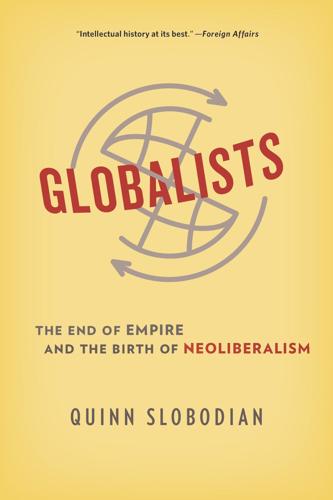
Globalists
by
Quinn Slobodian
Published 16 Mar 2018
The anti-planning world authority would be an agent of what other liberals called “denationalism,” overseeing the member states of an international federation and enforcing standards of free trade and free investment.58 Federation was a means of achieving the goals of militant globalism and militant democracy: it is “nothing but the application to international affairs of democracy, the only method of peaceful change man has yet invented,” he wrote, “but it is a democracy with definitely limited powers.”59 Hayek’s proposals for global governance had been largely passed over until scholars recently rediscovered, in his proposals for federalism, the “reinvention of liberal internationalism” and the implicit—and even explicit—inspiration for European economic integration.60 Wolfgang Streeck writes that Hayek’s work “reads like a blueprint for today’s European Union” in its design for institutions that link “internationalization” and “denationalization” with inexorable liberalization.61 Chapter 6 weighs the claim of Hayekian inspiration for European integration, and Chapter 7 his influence on architects of the World Trade Organization.
…
Bill Clinton, Remarks to the World Economic Forum, January 26, 1995, http://www.presidency.ucsb.edu/ws/?pid=51667. 2. Regierungserklärung des Bundeskanzlers Gerhard Schröder (SPD), “Mut zum Frieden und zur Veränderung,” March 14, 2003, http://www.documentArchiv.de/brd/2003/rede_schroeder_03-14.html. 3. Quoted in Wolfgang Streeck, Buying Time: The Delayed Crisis of Democratic Capitalism (New York: Verso, 2014), 213. 4. Chakravarthi Raghavan, “Trade: The Empire Strikes Back,” SUNS—South North Development Monitor, September 20, 1999; Michael Hardt and Antonio Negri, Empire (Cambridge, MA: Harvard University Press, 2000). 5.
…
Hayek und die Freiburger Schule,” Ordo 54 (2003): 3–20. For dissenting views, see Keith Tribe, Strategies of Economic Order: German Economic Discourse, 1750–1950 (New York: Cambridge University Press, 1995), 208; Manuel Wörsdörfer, “Von Hayek and Ordoliberalism on Justice,” Journal of the History of Economic Thought 35, no. 3 (2013): 309. 49. Wolfgang Streeck makes a similar argument: “Today’s post-democratic, or better perhaps: a-democratic, Hayekian capitalism, after the victory, or almost-victory, of neoliberalism, may be regarded as a historically updated version of ordoliberalism.” Streeck, “Heller, Schmitt and the Euro,” European Law Journal 21, no. 3 (May 2015): 365. 50.
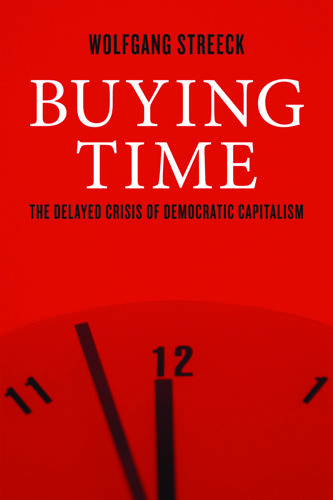
Buying Time: The Delayed Crisis of Democratic Capitalism
by
Wolfgang Streeck
Published 1 Jan 2013
This English-language edition first published by Verso 2014 Translation © Patrick Camiller 2014 First published as Gekaufte Zeit © Suhrkamp Verlag Berlin 2013 All rights reserved The moral rights of the author have been asserted Verso UK: 6 Meard Street, London W1F 0EG US: 20 Jay Street, Suite 1010, Brooklyn, NY 11201 www.versobooks.com Verso is the imprint of New Left Books eBook ISBN-13: 978-1-78168-619-5 (US) eBook ISBN-13: 978-1-78168-551-8 (UK) ISBN-13: 978-1-78168-548-8 (PBK) ISBN-13: 978-1-78168-549-5 (HBK) British Library Cataloguing in Publication Data A catalogue record for this book is available from the British Library Library of Congress Cataloging-in-Publication Data Streeck, Wolfgang, 1946– [Gekaufte Zeit. English] Buying time : the delayed crisis of democratic capitalism / Wolfgang Streeck; translated by Patrick Camiller. pages cm ‘First published as Gekaufte Zeit, Suhrkamp Verlag, Berlin, 2013.’ ISBN 978-1-78168-549-5 (hardback) — ISBN 978-1-78168-619-5 (ebook) 1. Capitalism. 2. Neoliberalism. 3. Democracy—Economic aspects. 4. Economic policy. 5. Financial crises. I. Title.
…
‘Die Folgen sozialer Ungleichheit für die Demokratie in Westeuropa’, Zeitschrift für vergleichende Politikwissenschaft, vol. 4/1, 2010, pp. 131–56. ———. Republican Liberty and Compulsory Voting, MPIfG Discussion Paper No. 11/17, Cologne: Max-Planck-Institut für Gesellschaftsforschung, 2011. ———. and Wolfgang Streeck, ‘Introduction’, in Armin Schäfer et al. (eds), Politics in the Age of Austerity, Cambridge: Polity, 2013. Scharpf, Fritz W., Crisis and Choice in European Social Democracy, Ithaca, NY: Cornell University Press, 1991. ———. ‘Negative and Positive Integration in the Political Economy of European Welfare States’, in Gary Marks et al.
…
Schmidt (eds), Welfare and Work in the Open Economy, Vol. 2, Diverse Responses to Common Challenges, Oxford: Oxford University Press, 2000. Schlieben, Michael, ‘Die wählen sowieso nicht’, Zeit online, 13 May 2012. Schmitter, Philippe C. and Gerhard Lehmbruch (eds), Trends Towards Corporatist Intermediation, London: Sage, 1979. ———. and Wolfgang Streeck, The Organization of Business Interests: Studying the Associative Action of Business in Advanced Industrial Societies, MPIfG Discussion Paper No. 99/1, Cologne: MaxPlanck-Institut für Gesellschaftsforschung, 1999. Schor, Juliet, The Overworked American: The Unexpected Decline of Leisure, New York: Basic Books, 1992.
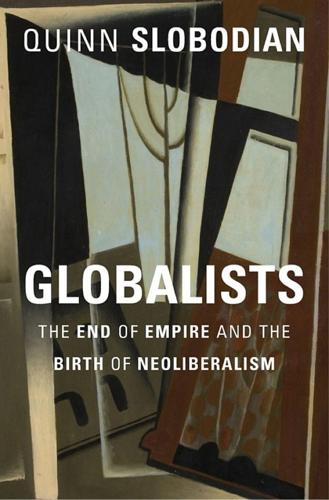
Globalists: The End of Empire and the Birth of Neoliberalism
by
Quinn Slobodian
Published 16 Mar 2018
The anti-planning world authority would be an agent of what other liberals called “denationalism,” overseeing the member states of an international federation and enforcing standards of free trade and free investment.58 Federation was a means of achieving the goals of militant globalism and militant democ- A W o r l d of F e d e r atio n s 105 racy: it is “nothing but the application to international affairs of democracy, the only method of peaceful change man has yet invented,” he wrote, “but it is a democracy with definitely limited powers.”59 Hayek’s proposals for global governance had been largely passed over until scholars recently rediscovered, in his proposals for federalism, the “reinvention of liberal internationalism” and the implicit—and even explicit—inspiration for European economic integration.60 Wolfgang Streeck writes that Hayek’s work “reads like a blueprint for today’s European Union” in its design for institutions that link “internationalization” and “denationalization” with inexorable liberalization.61 Chapter 6 weighs the claim of Hayekian inspiration for European integration, and Chapter 7 his influence on architects of the World Trade Organization.
…
Bill Clinton, Remarks to the World Economic Forum, January 26, 1995, http://w ww .presidency.ucsb.edu/ws/?pid= 51667. 2. Regierungserklärung des Bundeskanzlers Gerhard Schröder (SPD), “Mut zum Frieden und zur Veränderung,” March 14, 2003, http://w ww.documentArchiv.de /brd/2003/rede_schroeder_03-14.html. 3. Quoted in Wolfgang Streeck, Buying Time: The Delayed Crisis of Democratic Capitalism (New York: Verso, 2014), 213. 4. Chakravarthi Raghavan, “Trade: The Empire Strikes Back,” SUNS—South North Development Monitor, September 20, 1999; Michael Hardt and Antonio Negri, Empire (Cambridge, MA: Harvard University Press, 2000). 5.
…
Hayek und die Freiburger Schule,” Ordo 54 (2003): 3–20. For dissenting views, see Keith Tribe, Strategies of Economic Order: German Economic Discourse, 1750–1950 (New York: Cambridge University Press, 1995), 208; Manuel Wörsdörfer, “Von Hayek and Ordoliberalism on Justice,” Journal of the History of Economic Thought 35, no. 3 (2013): 309. Wolfgang Streeck makes a similar argument: “Today’s post-democratic, or better perhaps: a-democratic, Hayekian capitalism, a fter the victory, or almost-v ictory, of neoliberalism, may be regarded as a historically updated version of ordoliberalism.” Streeck, “Heller, Schmitt and the Euro,” European Law Journal 21, no. 3 (May 2015): 365. 296 NOTES TO PAGES 12–24 50.
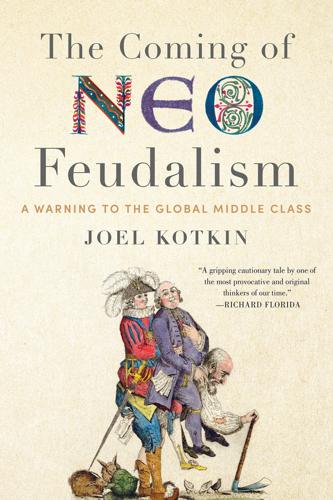
The Coming of Neo-Feudalism: A Warning to the Global Middle Class
by
Joel Kotkin
Published 11 May 2020
Labor Market Looks Somewhat Like Japan’s,” Bloomberg, June 19, 2018, https://www.bloomberg.com/news/articles/2018–06-19/powell-s-puzzling-u-s-labor-market-looks-somewhat-like-japan-s; Peter Dockrill, “US Fertility Rates Have Plummeted Into Uncharted Territory, And Nobody Knows Why,” Science Alert, May 21, 2018, https://www.sciencealert.com/us-birth-rate-hits-record-low-fertility-plummets-uncharted-territory-cdc-decline; Andrew Van Dam, “Toys R Us’s baby problem is everybody’s baby problem,” Washington Post, March 15, 2018, https://www.washingtonpost.com/news/wonk/wp/2018/03/15/toys-r-uss-baby-problem-is-everybodys-baby-problem/?noredirect=on&utm_term=.fb1caf2d80c5; Justin Fox, “The Consequences of the U.S. Baby Bust,” Bloomberg Opinion, September 20, 2017, https://www.bloomberg.com/view/articles/2017-09-20/the-consequences-of-the-u-s-baby-bust; Wolfgang Streeck, How Will Capitalism End? Essays on a Failing System (New York: Verso, 2016), 219. 30 Phil Longman, The Empty Cradle: How Falling Birthrates Threaten World Prosperity (New York: New America Books, 2004); Joel Kotkin, “Death Spiral Demographics: The Countries Shrinking the Fastest,” Forbes, February 1, 2017, https://www.forbes.com/sites/joelkotkin/2017/02/01/death-spiral-demographics-the-countries-shrinking-the-fastest/#4ae48b38b83c. 31 Alex Gray, “The troubling charts that show young people losing faith in democracy,” World Economic Forum, December 1, 2016, https://www.weforum.org/agenda/2016/12/charts-that-show-young-people-losing-faith-in-democracy/. 32 Amanda Taub, “How Stable Are Democracies?
…
(New York: Simon & Schuster, 2013), xii. 38 Will Oremus, “Most Americans Still Don’t Fear Big Tech’s Power,” Slate, March 16, 2018, https://slate.com/technology/2018/03/most-americans-still-dont-fear-big-techs-power-survey-finds.html; Aaron Smith, “Public Attitudes Toward Technology Companies,” Pew Research Center, June 28, 2018, http://www.pewinternet.org/2018/06/28/public-attitudes-toward-technology-companies/. 39 Wolfgang Streeck, How Will Capitalism End? (New York: Verso, 2016), 117. 40 Philip Elmer-DeWitt, “The Tea Party, Occupy Wall Street and Steve Jobs,” Fortune, November 6, 2011, http://fortune.com/2011/11/06/the-tea-party-occupy-wall-street-and-steve-jobs/. 41 Piketty, Capital in the Twenty-First Century, 444. 42 David Callahan, Fortunes of Change: The Rise of the Liberal Rich and the Remaking of America (New York: Wiley, 2010), 67, 269. 43 “America’s Gilded Age: Robber Barons and Captains of Industry,” Maryville University, https://online.maryville.edu/business-degrees/americas-gilded-age/.
…
CHAPTER 15—PEASANT REBELLIONS 1 Christopher Caldwell, “Sending Jobs Overseas,” Claremont Review of Books, Spring 2017, http://www.claremont.org/crb/article/sending-jobs-overseas/#.WRf0XNzmbGE.twitter. 2 Adele M. Stan, “Trump and the Rise of 21st Century Fascism,” American Prospect, August 27, 2018, http://prospect.org/article/trump-and-rise-21st-century-fascism. 3 Wolfgang Streeck, How Will Capitalism End? Essays on a Failing System (Brooklyn: Verso, 2016), 67; Anand Giridharadas, “After the Financial Crisis, Wall Street Turned to Charity—and Avoided Justice,” New Yorker, September 15, 2018, https://www.newyorker.com/news/news-desk/after-the-financial-crisis-wall-street-turned-to-charityand-avoided-justice. 4 Dani Rodrik, “Populism and the economics of globalization,” Journal of International Business Policy, 2018, https://drodrik.scholar.harvard.edu/files/dani-rodrik/files/populism_and_the_economics_of_globalization.pdf. 5 Pierre Riché, Daily Life in the World of Charlemagne, trans.
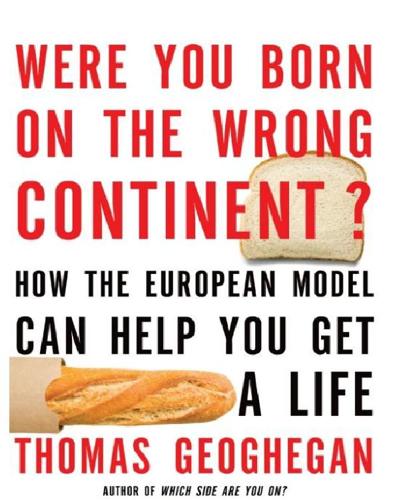
Were You Born on the Wrong Continent?
by
Thomas Geoghegan
Published 20 Sep 2011
At this time, there was a common view in Germany that the world would no longer need its high-quality goods. Somehow the fact that they kept selling them was just a fluke. Thanks to Americans, many Germans—intellectuals, businessmen—had talked themselves into thinking German-type capitalism wouldn’t work anymore. On the left, Wolfgang Streeck had presented this case in a much-buzzed-about paper: “German Capitalism: Does It Exist? Can It Survive?” He said there were vanishing investment opportunities because the Germans were running out of new things to make. It was The Decline of the West all over again. It was inevitable. Mr. Z. seemed to take this view.
…
At O’Hare, I was still trying to settle the Dickieson case and set up a deposition when I got on Lufthansa and had to turn off my cell phone. And we were up in the air—and soon they were bringing brötchen and I was already in Europe. I pulled out some of my notes from 1997, and I had packed my trusty copy of Wolfgang Streeck’s “German Capitalism: Does It Exist? Can It Survive?” I expected in Berlin people would argue about the German model as they had before. But what I read on the plane was Jared Diamond’s Guns, Germs, and Steel: The Fates of Human Societies. Yes, I know, it was a bestseller, so I broke my rule in buying it.
…
Even in “sales,” which is Sennett’s bugaboo, Willy Loman has a “career,” a sense of craft that is practically medieval, literally doing the same job, learning the product, going deeper into it every year. And to a labor lawyer like me, the paradox about the American emphasis on “team” is that, in the U.S., there is no real sense of “team.” Take a look at their depositions: there are so many hostile, sullen people. Based on what I’ve seen, I’m inclined to believe Wolfgang Streeck when he makes a standard point about the U.S. and German models. While Streeck was pessimistic about the German model, he still notes its advantages. In the U.S., for example, where the corporation is authoritarian and undemocratic, it’s easy to make decisions. The hard thing is to implement them.

The Extreme Centre: A Warning
by
Tariq Ali
Published 22 Jan 2015
See ‘In Cold War, US Spy Agencies Used 1,000 Nazis’, New York Times, 26 October 2014. 4 A recent study by Emily Morris, a lecturer at University College London, revealed that Cuba scored higher on all the social indices than the Eastern European states. See ‘The Cuban Surprise’, New Left Review, July–August 2014. 5 Two important books on this subject are the late Peter Mair’s Ruling the Void (London and New York, 2013) and Wolfgang Streeck’s Buying Time: The Delayed Crisis of Democratic Capitalism (London and New York, 2014). Both highlight the processes at work. Mair’s stinging attack on the EU provides a very strong basis for a left critique of the German-dominated bankers’ union. 6 Seumas Milne’s The Enemy Within (fourth edition, London and New York, 2014) has become a classic on the subject, detailing the methods deployed by the State to defeat the miners. 7 In September 2014, Spaniards were startled to learn that their right-wing government – the modernized heirs of Franco currently wrecking their country on behalf of the Troika – had decided to erect a statue to her memory in Madrid. 1 English Questions We live in a country without an opposition.
…
Only in Spain and Greece, both countries with a long experience of civil war and dictatorship, have we seen the possibility of something different. A challenge to the extreme centre from the left, but an untried left that has yet to be tested. It would be an error if they simply accepted the legitimacy of the EU and its institutions as presently constituted. The German sociologist Wolfgang Streeck has, in the last chapter of his Buying Time, sketched the outline of what form a new, democratic European Constitution could take, representing as the continent does a culturally diverse and socially heterogeneous reality. The merchants of the status quo have granted the European Parliament some more powers, but not sovereignty.
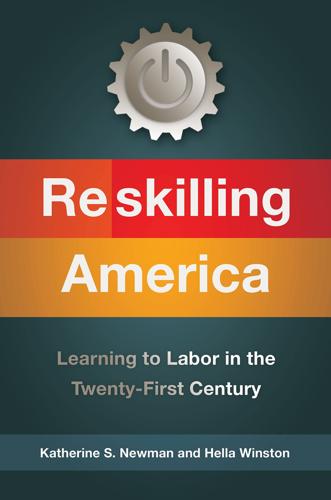
Reskilling America: Learning to Labor in the Twenty-First Century
by
Katherine S. Newman
and
Hella Winston
Published 18 Apr 2016
This finding resonates well with the sociological literature on labor market transitions.” Wolfgang Streeck, “Successful Adjustment to Turbulent Markets: The Automobile Industry,” in Industry and Politics in West Germany: Toward the Third Republic, ed. Peter J. Katzenstein (Ithaca, NY: Cornell University Press, 1989), 113–56; Wolfgang Streeck, “Beneficial Constraints: On the Economic Limits of Rational Voluntarism,” in Contemporary Capitalism: The Embeddedness of Institutions, ed. J. Rogers Hollingsworth and Robert Boyer (Cambridge, UK: Cambridge University Press, 1997), 197–219. Wolfgang Streeck, Social Institutions and Economic Performance: Studies of Industrial Relations in Advanced Capitalist Economies (London: Sage, 1992), 1–40.

The New Class War: Saving Democracy From the Metropolitan Elite
by
Michael Lind
Published 20 Feb 2020
Among contemporary scholars, who may reject some or all of my arguments and conclusions, I would like to acknowledge intellectual debts to Julius Krein on managerialism; David Marquand on pluralism; Edna Bonacich on split labor markets; Theda Skocpol on mass-membership organizations; Sheri Berman and Wolfgang Streeck on the history of social democracy; David Goodhart, Eric Kaufmann, Matthew Goodwin, Christophe Guilluy, and Nancy Fraser on populism, nationalism, and social class; Yascha Mounk on undemocratic liberalism; James K. Galbraith, Robert D. Atkinson, Dani Rodrik, Erik Reinert, Ha-Joon Chang, and Robert Kuttner on the economy; Daniel McCarthy on palliative liberalism; Reihan Salam, the late Vernon M.
…
Adam Smith, An Inquiry into the Nature and Causes of the Wealth Of Nations, Book VI, Chapter II, “Of the Sources of the General or Public Revenue of the Society,” Part II, “Of Taxes,” Article II, “Taxes Upon Profit, or Upon the Revenue Arising from Stock,” Project Gutenberg ebook of An Inquiry into the Nature and Causes of the Wealth of Nations, ebook #3300, accessed October 3, 2019, https://www.gutenberg.org/files/3300/3300-h/3300-h.htm#chap11. 24. Smith, An Inquiry, Book I, Chapter IX, “On the Profits of Stock.” 25. Peter Mair, Ruling the Void: The Hollowing of Western Democracy (London: Verso, 2013), p. 1. 26. Wolfgang Streeck and Philippe C. Schmitter, “From National Corporatism to Transnational Pluralism: Organized Interests in the Single European Market,” Politics and Society, June 1, 1991. 27. David Skelton, “Government of the Technocrats, by the Technocrats, for the Technocrats,” New Statesman, November 16, 2011; James Mackenzie, Diana Khyriakidou, “A Tale of Two Technocrats: Paths Diverge for Greece and Italy,” Reuters, February 3, 2012. 28.

London Review of Books
by
London Review of Books
Published 14 Dec 2017
Gentlemen no longer fight duels with their social equals to avenge slights, or publicly cane social inferiors thought to have insulted them. Like then, however, we are surrounded by hyper-partisanship, alternative facts, widely accepted conspiracy theories, demagogic politics and prominent political figures collaborating with foreign governments. Some things never change. * * * You need a gun Wolfgang Streeck | 3053 words The H-Word: The Peripeteia of Hegemony by Perry Anderson Verso, 190 pp., £16.99, April, ISBN: 978 1 78663 368 2 The Antinomies of Antonio Gramsci by Perry Anderson Verso, 179 pp., £14.99, April, ISBN: 978 1 78663 372 9 What is the relationship between coercion and consent?
…
Rory Scothorne is doing a PhD at Edinburgh University. Ruth Scurr is the author of a biography of Robespierre and, most recently, of John Aubrey: My Own Life . Stephen Sedley is a former appeal court judge. A collection of essays is due in 2018. Daniel Soar is an editor at the LRB . Wolfgang Streeck ’s How Will Capitalism End? came out last year. He is director emeritus of the Max Planck Institute in Cologne. Michael Wood ’s time is never squandered. * * * Tree-Planting James Arthur | 404 words The crew come from all over, because the money is that good. Women, men – many are students planting as a summer job, moiling in the mud, sweating bug spray.
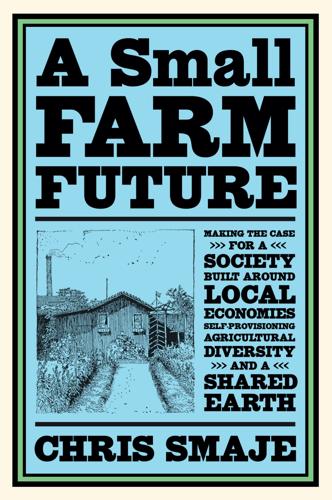
A Small Farm Future: Making the Case for a Society Built Around Local Economies, Self-Provisioning, Agricultural Diversity and a Shared Earth
by
Chris Smaje
Published 14 Aug 2020
This may happen as wage stagnation and rising poverty, inequality and work precarity, set against rising capitalist profits – increasingly common worldwide, especially in the richer countries – makes hopes of long-term prosperity for the majority of people ever more visibly blocked by a minority.124 Sociologist Wolfgang Streeck coined the term ‘consolidation state’ to describe the turning away of the contemporary state from the wider interests of its citizens towards the specific interests of global markets and the wealthy owners of capital. Naomi Klein calls it ‘McGovernment’, a ‘happy meal of cutting taxes, privatizing services, liberalizing regulations, busting unions’ to remove impediments to private markets.125 In this way, the ideal of the creative and productive neoliberal market economy becomes the reality of rapacious and unfettered rent-seeking by global capital.
…
What happens when the non-symbolic world claims back the debt, when systemic political and economic crises start propagating, when increasing job precarity prompts political revolt or when cash stops being transferable is anybody’s guess. But possibly the situation of the 2 billion or so, mostly poor, farmers of the world who currently seem destined not to find more lucrative jobs within the waged economy might brighten. Indeed, their numbers might swell. Wolfgang Streeck argues that the combination of increasing inequality, debt and political stress with decreasing growth will probably end the era of capitalism – one that lasted longer than anyone could have expected on the basis of its strange socioeconomic ordering: an economy requiring limitless growth, and a society that, in his words: ‘secures its collective reproduction as an unintended side-effect of individually rational, competitive profit maximization’ that puts its productive capital into the hands of a minority, thereby largely abdicating political responsibility for human welfare.
…
But it still seems unlikely that existing states will be able to deliver a small farm future, or else rescue the present global order from the crises enveloping it. This is partly because the depth and speed of these crises isn’t prompting the degree of radical rethinking that’s needed to overcome them. It’s also because the very structure of the modern state itself is part of the problem (see Wolfgang Streeck’s consolidation state argument, Chapter 1, ‘Crisis #9: Political Economy’, page 66). We seem to be living in an age of zombie liberalism. Neither right-wing versions – that price-responsive markets will progressively solve current problems – nor left-wing versions – that justice-responsive governments will progressively solve current problems and fairly distribute the economic surplus – show any vital signs, yet they still dominate the political scene.
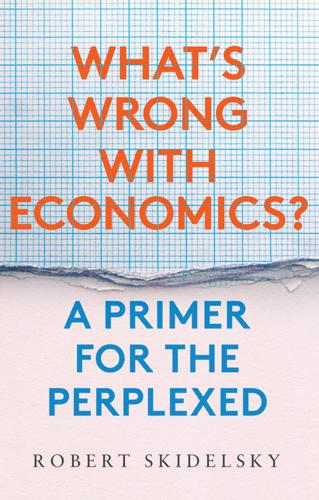
What's Wrong With Economics: A Primer for the Perplexed
by
Robert Skidelsky
Published 3 Mar 2020
The demand for sociology as a science of society may have weakened, but there is also a problem with the supply. Contemporary sociologists have, by and large, left the economy to the economists, even though the economists’ image of a world in which the ‘invisible hand’ of the market guarantees social stability is profoundly opposed to the sociological standpoint. Sociology, writes Wolfgang Streeck, must rediscover political economy.9 The choice between the individual and the social is not straightforward. One strong defence can be offered for methodological individualism: it guards against treating individuals simply as members of groups, deprived of agency. Its weakness is that it ignores the architecture of choice.
…
It is surely no coincidence that the policy of central bank independence depends largely on the acceptance that economics is a science, and thus the decisions of a central bank are technical, rather than political, in nature. The idea of a technocratic ruling group, above ‘class’ and ruling in the interests of the whole society, is strongly challenged by those in the Marxist tradition. Capitalism and democracy, writes the German sociologist Wolfgang Streeck, ‘are both individually as well as in their respective combinations, the outcome of specific configurations of classes and class interests as evolved in a historical process, driven not by intelligent design, but by the distribution of class political capacities.’18 The Keynesian revolution itself represented a balance of forces between an increasingly organised working class and a capitalist class on the defensive.19 5.
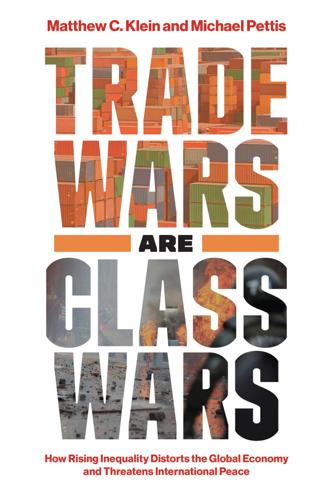
Trade Wars Are Class Wars: How Rising Inequality Distorts the Global Economy and Threatens International Peace
by
Matthew C. Klein
Published 18 May 2020
A generous welfare state, an aging society with a stagnant population, and minimal productivity growth ensured that more and more of the budget was being devoted to pensions, unemployment benefits, health care, and debt service. By the early 2000s, the social security system and interest payments alone were consuming half of the federal budget. Another 25 percent of the budget went to long-term jobless benefits and the salaries of federal bureaucrats. Wolfgang Streeck, the director of the Max Planck Institute for the Study of Societies, summarized the situation as one where the “long-term build-up of financial commitments and legal obligations” had “curtailed the degrees of freedom of public policy.” In the absence of “opportunities for statecraft to make a difference,” Germany’s elected officials opted instead for “stagecraft” to maintain the “façade of free political choice.”
…
Deutsche Bundesbank, “Lending to Foreign Nonbanks, Total”; Deutsche Bundesbank, “Lending to Foreign Banks (MFIs), Total”; Deutsche Bundesbank, “Balance of Payments,” https://www.bundesbank.de/en/statistics/external-sector/balance-of-payments. 51. Konstantin von Hammerstein and René Pfister, “Merkel’s Dispassionate Approach to the Euro Crisis,” Der Spiegel, December 12, 2012. 52. Wolfgang Streeck, “Endgame? The Fiscal Crisis of the German State,” Max Planck Institute for the Study of Societies, MPIfG Discussion Paper 07/7. 53. Federal Ministry of Finance, Economics Department, “Reforming the Constitutional Budget Rules in Germany,” September 2009, http://www.kas.de/wf/doc/kas_21127-1522-4-30.pdf?
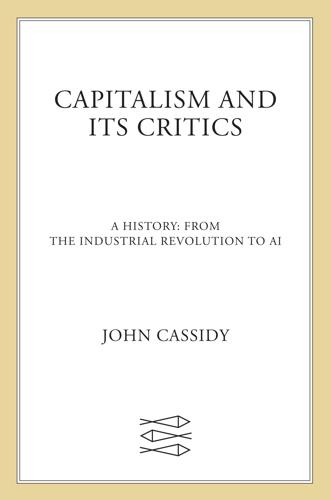
Capitalism and Its Critics: A History: From the Industrial Revolution to AI
by
John Cassidy
Published 12 May 2025
Joshua Rhett Miller, “Jeff Bezos’ $500M Yacht Has a 246-foot Support Ship, Lauren Sanchez Figurehead,” New York Post, May 20, 2023, https://nypost.com/2023/05/20/meet-jeff-bezos-fleet-and-its-lauren-sanchez-figurehead. 11. Guthrie Scrimgeour, “Inside Mark Zuckerberg’s Top-Secret Hawaii Compound,” Wired, December 14, 2023, https://www.wired.com/story/mark-zuckerberg-inside-hawaii-compound. 12. Wolfgang Streeck, “How Will Capitalism End?,” New Left Review, no. 87 (May/June 2014), https://newleftreview.org/issues/ii87/articles/wolfgang-streeck-how-will-capitalism-end. 13. Streeck, “How Will Capitalism End?” 14. Streeck, “How Will Capitalism End?” 15. International Monetary Fund, World Economic Outlook, April 2024, 138, table A1, “Summary of World Output,” https://www.imf.org/en/Publications/WEO/Issues/2024/04/16/world-economic-outlook-april-2024#statistical. 16.
…
In 2023 Amazon’s Jeff Bezos took possession of a custom-built 417-foot-long superyacht that came with a helipad-equipped support vessel and was rumored to cost $500 million.10 Meta’s Mark Zuckerberg was building a fourteen-hundred-acre compound in Hawaii that reportedly included a blast-proof underground bunker.11 “Nobody believes any more in a moral revival of capitalism,” the sociologist Wolfgang Streeck, the longtime director of the Max Planck Institute for the Study of Societies in Cologne, wrote. “The Weberian attempt to prevent it from being confounded with greed has finally failed, as it has more than ever become synonymous with corruption.” Streeck made this comment in 2014. The subsequent decade only confirmed his point.12 So, what was the prognosis for capitalism, two and a half centuries after Richard Arkwright opened Cromford Mill?
…
But for more than two hundred years, capitalism has evolved in waves and counterwaves, some of which are driven by its inner conflicts, as identified by Marx and his followers; some by technological developments, as in the Kondratiev “long wave” model; and others by political pressures, as in Polanyi’s “double movement.” At any given moment, it’s difficult (if not impossible) to tell how long the current configuration will survive, or what will succeed it. But the system cannot rest. This has been true throughout its history. It will remain true until Wolfgang Streeck or one of his descendants is eventually proved right. Notes Introduction 1. Jeff Stein, “Here’s the Full Text of Bernie Sanders’s Iowa Speech,” Vox, February 2, 2016, https://www.vox.com/2016/2/2/10892752/bernie-sanders-iowa-speech. 2. Frank Newport, “Democrats More Positive About Socialism Than Capitalism,” Gallup, August 13, 2018, https://news.gallup.com/poll/240725/democrats-positive-socialism-capitalism.aspx. 3.
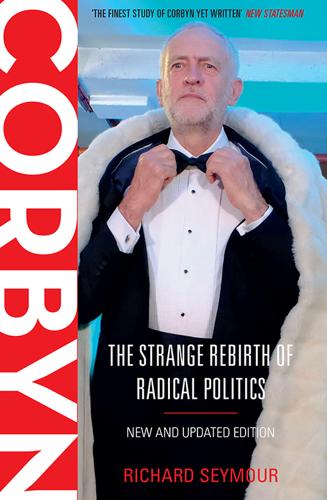
Corbyn
by
Richard Seymour
, LRB blog, 3 December 2015. 12Colin Crouch, Coping with Post-Democracy, Fabian Society, 2000; Colin Crouch, Post-Democracy, London: Polity, 2004; Colin Crouch, The Strange Non-Death of Neo-Liberalism, London: Polity, 2011. 13Peter Mair, Ruling the Void: The Hollowing Out of Western Democracy, London: Verso, 2013, Kindle Loc. 367. 14Peter Mair, Ruling the Void: The Hollowing Out of Western Democracy, London: Verso, 2013, Kindle Loc. 437–67. 15Armin Schäfer and Wolfgang Streeck, ‘Introduction: Politics in the Age of Austerity’, in Armin Schäfer and Wolfgang Streeck, eds., Politics in the Age of Austerity, Cambridge: Polity, p. 16. 16Peter Mair, Ruling the Void: The Hollowing Out of Western Democracy, London: Verso, 2013, Kindle Loc. 665. 17Peter Mair, Ruling the Void: The Hollowing Out of Western Democracy, London: Verso, 2013, Kindle Loc. 623. 18Pippa Norris, ‘Apathetic Landslide’, Parliamentary Affairs, 54, 2001, pp. 565–89. 19Pippa Norris, ‘Apathetic Landslide’, Parliamentary Affairs, 54, 2001, pp. 565–89; Ron Johnson and Charles Pattie, Putting Voters in Their Place: geography and elections in Great Britain, Oxford: Oxford University Press, 2006, p. 246. 20David Garner, ‘Why do so few people vote in UK elections now?’

After Europe
by
Ivan Krastev
Published 7 May 2017
Most Europeans believe that the lives of today’s children will be more difficult than those of their own generation; and as the refugee crisis demonstrates, immigration is unlikely to provide Europe with a solution for its demographic weakness. But it is not only demography that puts the European welfare state in a precarious position. According to Wolfgang Streeck, the director of the Max Plank Institute and one of Germany’s leading sociologists, the European welfare state model has been in crisis since the 1970s. Capitalism has successfully wrested free from the institutions and regulations imposed on it after World War II, and as a result, the much praised European “tax state” has effectively been transformed into a “debt state.”

Four Futures: Life After Capitalism
by
Peter Frase
Published 10 Mar 2015
This doesn’t mean engaging in the secular eschatology that sets a firm end date on capitalism—too many socialists and apocalyptic preachers have made that mistake. It’s too simplistic to think of discrete endings in any case; labels for social systems like “capitalism” and “socialism” are abstractions, and there is never a single moment when we can definitively say that one turns into the other. My view is closer to the sociologist Wolfgang Streeck: The image I have of the end of capitalism—an end that I believe is already under way—is one of a social system in chronic disrepair, for reasons of its own and regardless of the absence of a viable alternative. While we cannot know when and how exactly capitalism will disappear and what will succeed it, what matters is that no force is on hand that could be expected to reverse the three downward trends in economic growth, social equality and financial stability and end their mutual reinforcement.28 The four chapters that follow are each dedicated to one of the four futures: communism, rentism, socialism, and exterminism.
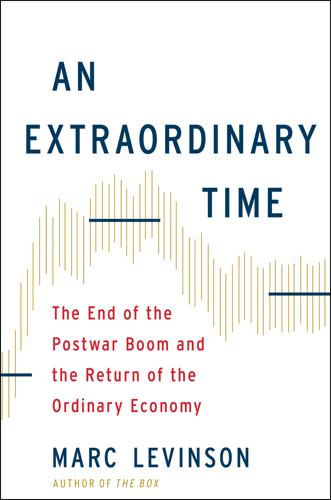
An Extraordinary Time: The End of the Postwar Boom and the Return of the Ordinary Economy
by
Marc Levinson
Published 31 Jul 2016
The theme of ungovernability, much discussed in the 1970s, emerged again in the twenty-first century as political leaders struggled to communicate convincing visions of a better future. It is easy to read the economic changes that began around 1973 as a perversion of the postwar social contract. The German sociologist Wolfgang Streeck, for example, interprets what he calls “the crisis of late capitalism” in the final decades of the twentieth century as “an unfolding of the old fundamental tension between capitalism and democracy—a gradual process that broke up the forced marriage between the two after the Second World War.”
…
Robert Brenner, The Economics of Global Turbulence (London: Verso, 2006), 6–7, 101–109. Brenner identifies manufacturers’ declining profits as a major cause of poor productivity growth. 15. Raghuram G. Rajan, Fault Lines: How Hidden Fractures Still Threaten the World Economy (Princeton, NJ: Princeton University Press, 2010). 16. Wolfgang Streeck, Buying Time: The Delayed Crisis of Global Capitalism (London: Verso, 2014), 4. 17. Retirement ages are from OECD estimates of the average effective age of retirement. On Social Security, see Orlo Nichols, Michael Clingman, and Alice Wade, “Internal Real Rates of Return Under the OASDI Program for Hypothetical Workers,” Social Security Administration Actuarial Note, no. 2004.5 (March 2005).
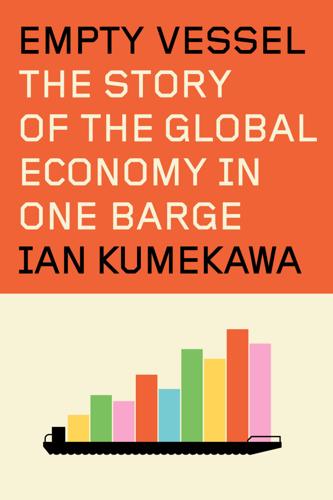
Empty Vessel: The Story of the Global Economy in One Barge
by
Ian Kumekawa
Published 6 May 2025
BACK TO NOTE REFERENCE 27 Eric Hobsbawm and George Rudé, Captain Swing (London: Lawrence and Wishart, 1969). BACK TO NOTE REFERENCE 28 Tolliday, “From ‘Beetle Monoculture’ to the ‘German Model,’ ” 126; Wolfgang Streeck, Industrial Relations in West Germany: A Case Study of the Car Industry (New York: Pearson Education, 1984); Wolfgang Streeck, “Successful Adjustment to Turbulent Markets: The Automobile Industry,” in Industry and Politics in West Germany: Toward the Third Republic, ed. Peter J. Katzenstein (Ithaca: Cornell University Press, 1991). On the German model more generally, see Hyeong-ki Kwon, “The German Model Reconsidered,” German Politics and Society 20, no. 4 (Winter 2002), 48–72.
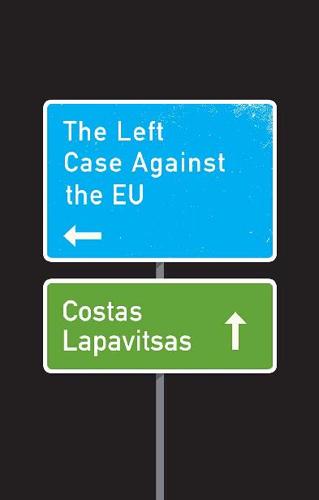
The Left Case Against the EU
by
Costas Lapavitsas
Published 17 Dec 2018
Every effort has been made to trace all copyright holders, but if any have been overlooked the publisher will be pleased to include any necessary credits in any subsequent reprint or edition. For further information on Polity, visit our website: politybooks.com Acknowledgements Several people should be thanked for making this book possible without bearing any responsibility for its shortcomings. Fritz Scharpf and Wolfgang Streeck provided intellectual testing and support during a brief stay in Cologne. Particular thanks should go to Martin Höpner, who, apart from being a sharp interlocutor, went through the text meticulously and with a critical eye. Bob Brenner spent time and effort examining some of the key arguments.
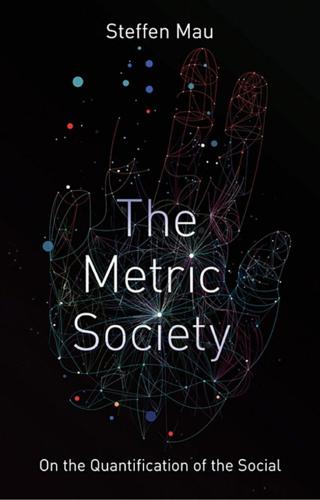
The Metric Society: On the Quantification of the Social
by
Steffen Mau
Published 12 Jun 2017
A person who holidays in Italy every year will never see another advert for cruises to the Norwegian fiords. Online purchases, mobility profiles, friend networks and website visits are all used to build up a customized advertising environment which simultaneously excludes anything that doesn't ‘match’ our profile. What we are witnessing here is a paradox of expanding and narrowing options. Wolfgang Streeck sees in this the rise of a new form of sociation characterized by increasing fragmentation and tribalization: ‘The expansion of individual choice that comes with the digitalization of social relations, including corporate sales channels, also means more opportunities for deselection. Therefore, the possibility of chance confrontations with the unknown, or things that were perhaps only rejected out of ignorance, is ruled out, and potentially productive disturbances of already made identity decisions cannot occur’ (2015b: 79).
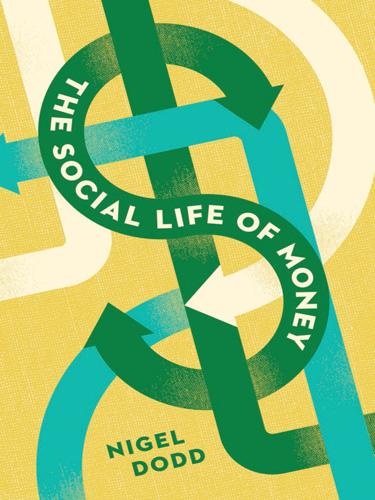
The Social Life of Money
by
Nigel Dodd
Published 14 May 2014
Debt underwrites hierarchy and moral order among nations as well as individuals, as if the “price of a country’s sovereign debt (the interest rates its bonds command on these markets) appears as an objectified measure of some sort of underlying moral worth in the eyes of investors” (Fourcade 2013: 22). According to Wolfgang Streeck, this attitude has been especially pronounced during the Eurozone crisis, with Greece cast as the morally dubious debtor: “The moral discourse on Greek public finances focuses on ‘the Greek citizens’ and their presumed duty to pay off debt taken up by their past governments, supposedly to enable their voters to enjoy an easy life on unearned income” (Streeck 2013: 18).
…
The crisis has focused on the large deficits of specific member states, which reflect complex linkages among money, public finances, private debt, and the global banking system. These are combining to enact different aspects of what Strange called overbanking. The complex nexus of public and private debt that defines the parameters of the crisis has torn the democratic integrity of its constituent member states apart. According to Wolfgang Streeck (Streeck 2011), the form of democratic capitalism found in the Eurozone operates according to two conflicting regimes of resource allocation, one based on marginal productivity and determined by market forces, the other based on need or entitlement and determined by democratic politics. These principles almost never align; one usually holds sway until there is a reaction, and such a reaction, e.g., of democracy against the market, was described through Polanyi’s notion of double movement (Polanyi 1957b).
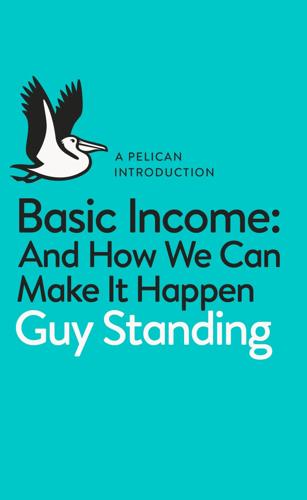
A Pelican Introduction: Basic Income
by
Guy Standing
Published 3 May 2017
Is the EU a threat to democracy? Chris Bickerton is a lecturer in politics at the University of Cambridge and a fellow of Queens’ College, Cambridge. He has taught at the universities of Oxford, Amsterdam and Sciences Po, Paris. One of his previous books, European Integration, was described by Professor Wolfgang Streeck, emeritus director of the Max Planck Institute for the Study of Societies, as “the most innovative contribution to the study of European integration I have seen in decades”. It was awarded the 2013 Best Book prize by the University Association of Contemporary European Studies. THE CALIPHATE Hugh Kennedy What is a caliphate?

Undoing the Demos: Neoliberalism's Stealth Revolution
by
Wendy Brown
Published 6 Feb 2015
Hart (eds.), Global ization and Governance (London: Routledge, 1999); James Rosenau and Ernst-Otto Czempiel (eds.), Governance without Government: Order and Change in World Politics (Cambridge: Cambridge University Press, 1992); Simon Hix, “The Study of the European Union II: The ‘New Governance’ Agenda and its Rivals,” Journal of European Public Policy 5.1 (1998), pp. 38–65; Markus Jachtenfuchs, “The Governance Approach to European Integration,” Journal of Common Market Studies 39.2 (2001), pp. 245–64; and Gary Marks, Fritz W. Scharpf, Philippe Schmitter, and Wolfgang Streeck, Governance in the European Union (London: Sage, 1996). 16. Rhodes, Understanding Governance, p. 47. 17. Ibid., especially chapter 3. 18. Philippe Ryfman “Governance and Policies in Nongovernmental Organizations” in Michel Feher (ed.), Nongovernmental Politics (New York: Zone, 2007), p. 289. 19.
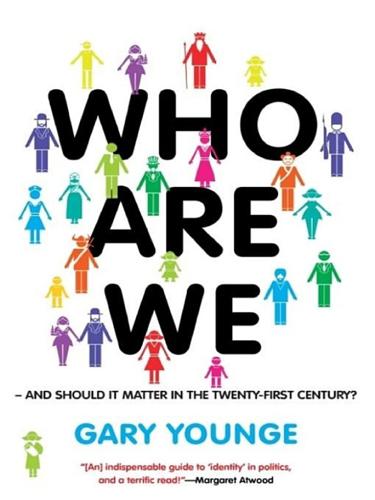
Who Are We—And Should It Matter in the 21st Century?
by
Gary Younge
Published 27 Jun 2011
Just over fifty years later, it is a 27-member-strong political and economic union, boasting a common currency (for most of its inhabitants), a court of human rights and a central bank. “If one wants a shorthand explanation for the renewed momentum of European integration in the mid-1980s,” argue Wolfgang Streeck and Philippe Schmitter in From National Corporatism to Transnational Pluralism, “one would probably account for it as the result of an alignment between two broad interests—that of large European firms struggling to be perceived to have competitive advantages in relation to Japanese and US capital and that of state elites seeking to restore at least part of the political sovereignty they had gradually lost at the national level as a result of growing international interdependence.”
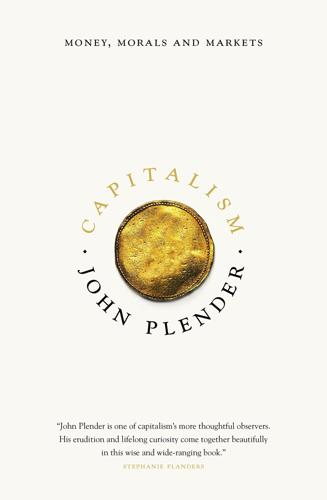
Capitalism: Money, Morals and Markets
by
John Plender
Published 27 Jul 2015
While global inequality is falling because the likes of China and India are growing faster than rich countries, the developed world economy has thus become polarised between a small group of the super-rich and the rest. The laggards enjoyed rising living standards before 2007, despite stagnant real incomes, thanks only to increased borrowing on the security of their homes. The German sociologist Wolfgang Streeck rightly points out that subprime mortgages became a substitute, however illusory in the end, for social policy that was simultaneously being scrapped, as well as for wage increases that were no longer forthcoming at the lower end of a more flexible labour market.212 Since the crisis, however, American and British home owners have faced a long and deep squeeze on real living standards, while struggling to service an unprecedented level of indebtedness.
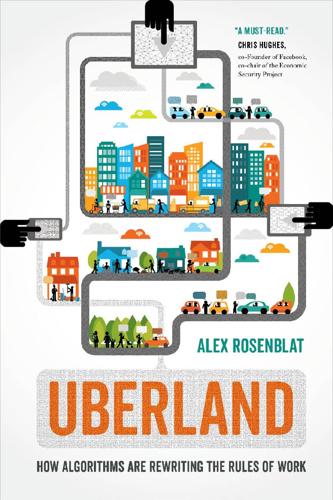
Uberland: How Algorithms Are Rewriting the Rules of Work
by
Alex Rosenblat
Published 22 Oct 2018
Walker, “The Uberization of Activism,” New York Times, August 6, 2015, www.nytimes.com/2015/08/07/opinion/the-uber-ization-of-activism.html?mcubz=1. 45. Nikil Saval, “Disrupt the Citizen: Against Ride Sharing,” Portside, July 11, 2017, https://portside.org/2017–07–11/disrupt-citizen-against-ride-sharing. 46. Ibid.; Wolfgang Streenck, “Citizens as Customers,” New Left Review 76 (2012), https://newleftreview.org/II/76/wolfgang-streeck-citizens-as-customers. 47. Jack Weatherford, Genghis Khan and the Making of the Modern World (New York: Broadway Books, 2014). 48. Tom Slee, What’s Yours Is Mine: Against the Sharing Economy (New York: OR Books, 2016). 49. “Uber, NAACP Create Partnership to Hire Minority Drivers in New Jersey,” December 23, 2015, CBS New York, http://newyork.cbslocal.com/2015/12/23/new-jersey-minority-uber-drivers-naacp/. 50.
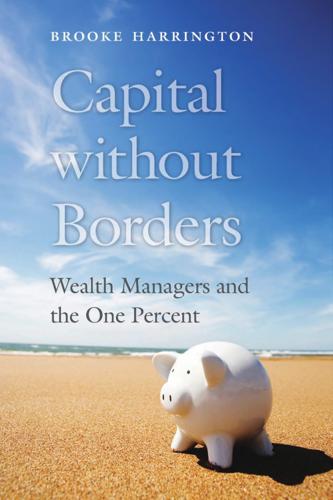
Capital Without Borders
by
Brooke Harrington
Published 11 Sep 2016
William Harvey, “Strategies for Conducting Elite Interviews,” Qualitative Research 11 (2011): 431–441. 88. Philip Davies, “Spies as Informants: Triangulation and the Interpretation of Elite Interview Data in the Study of the Intelligence and Security Services,” Politics 21 (2001): 73–80. 89. Max Weber, Economy and Society (New York: Bedminster Press, 1968 [1925]), 1:4. 90. Jens Beckert and Wolfgang Streeck, “Economic Sociology and Political Economy: A Programmatic Perspective,” Working Paper 08/4, 2008, Max Planck Institute for the Study of Societies, Cologne, Germany. 91. Harrington, “The Social Psychology of Access.” See also Brooke Harrington, “Obtrusiveness as Strategy in Ethnographic Research,” Qualitative Sociology 25 (2002): 49–61. 92.
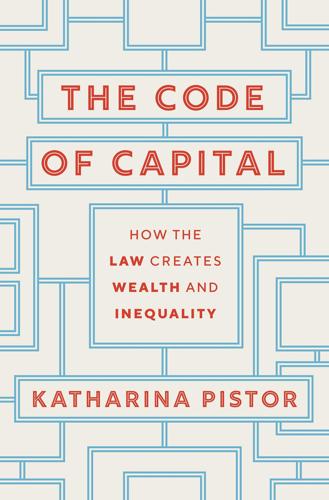
The Code of Capital: How the Law Creates Wealth and Inequality
by
Katharina Pistor
Published 27 May 2019
Carol Gluck reviewed my book proposal and urged me to keep my sight on the present and not lose myself in the past, which was a real temptation. Bruce Carruthers, Jean Cohen, Hanoch Dagan, Tsilly Dagan, Horst Eidenmüller, Tom Ginsburg (and his students), Maeve Glass, Martin Hellwig, Jorge Kamine, Cathy Kaplan, Dana Neacsu, Delphine Nougayrède, Casey Quinn, Annelise Riles, Bill Simon, Wolfgang Streeck, Massimiliano Vatiero, and Alice Wang all read and commented on individual chapters or earlier versions of the entire manuscript. The final product is so much the better because of their constructive critiques, and I am most thankful for the time and attention they have given to it. I am also immensely grateful to two anonymous reviewers, who offered their own thoughts and advice on how best to strengthen the book’s arguments and make sure that it lived up to its ambition to reach a broader audience.
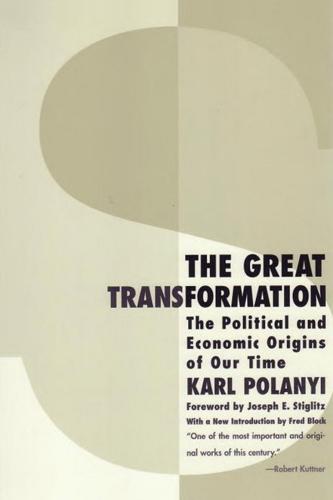
The Great Transformation: The Political and Economic Origins of Our Time
by
Karl Polanyi
Published 27 Mar 2001
Polanyi inspired a school of thought that flowered in the 1980s and 1990s that has analyzed the “varieties of capitalism,” showing the very significant differences in the ways that markets are embedded in the United States as compared with France, Germany, Japan, and other nations. See Rogers Hollingsworth and Robert Boyer, eds., Contemporary Capitalism: The Embeddedness of Institutions (Cambridge: Cambridge University Press, 1997); and Colin Crouch and Wolfgang Streeck, Political Economy of Modern Capitalism: Mapping Convergence and Diversity (Thousand Oaks, Calif.: Sage, 1997). 21. The idea was first elaborated by Isaac Gervaise and David Hume in the eighteenth century. Frank Fetter, Development of British Monetary Orthodoxy, 1797–1875 (Cambridge: Harvard University Press, 1965), p. 4. 22.
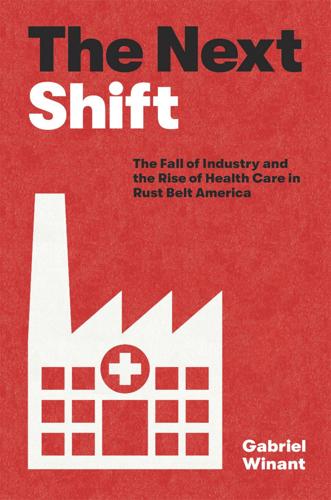
The Next Shift: The Fall of Industry and the Rise of Health Care in Rust Belt America
by
Gabriel Winant
Published 23 Mar 2021
Judith Stein, Pivotal Decade: How the United States Traded Factories for Finance in the Seventies (New Haven, CT: Yale University Press, 2010), 245–247; “A Sad Day for Steel Workers: 25 Years Later, Ex-Foreman Recalls Demise of Blast Furnace,” PPG, June 22, 2004. 19. On this transition, see David Harvey, A Brief History of Neoliberalism (Oxford: Oxford University Press, 2005); Robert Brenner, The Economics of Global Turbulence (London: Verso, 2006). On stagflation, see Wolfgang Streeck, Buying Time: The Delayed Crisis of Democratic Capitalism, trans. Patrick Camiller (London: Verso, 2014); “Volcker Asserts U.S. Must Trim Living Standard,” New York Times, October 18, 1979. 20. Stein, Pivotal Decade, 276; Federal Open Markets Committee, transcript of conference call, June 5, 1980, p. 10; On steel mill closures, see Hoerr, And the Wolf Finally Came. 21.

England: Seven Myths That Changed a Country – and How to Set Them Straight
by
Tom Baldwin
and
Marc Stears
Published 24 Apr 2024
, Guardian, 21 July 2010. 26 Katie Razzall, ‘Jimmy Carr’, BBC News, 7 February 2022. 27 ‘No female politician today’, The Times, 2 October 2002. 28 Mary Ann Sieghart, ‘Still in the greasy spoon era’, The Times, 9 October 2002. 29 Bunting, The Seaside, p. 284; John Windsor, ‘All up front, but now just a little behind’, Independent, 22 January 1994. 30 Wolfgang Streeck, ‘How Will Capitalism End?’, New Left Review 87 (2014). 31 Centre for Local Economic Strategies, A Summary of Austerity in the North West and a Case Study of Blackpool Council: Final Report, Manchester, Centre for Local Economic Strategies, 2014. 32 See https://ifs.org.uk/publications/2021-annual-report-education-spending-england 33 See https://unherd.com/2019/11/who-cares-about-immigration/ 34 https://www.blackpooljsna.org.uk/Blackpool-Profile/Ethnicity.aspx; Colin Ainscough, ‘This is how many EU citizens in Blackpool have applied to stay in the UK after Brexit’, Blackpool Gazette, 11 February 2020. 35 BBC News, ‘EU Referendum: North West towns vote Leave as cities votes Remain’, BBC News, 24 June 2016. 36 https://twitter.com/Nigel_Farage/status/1566471401153957888?
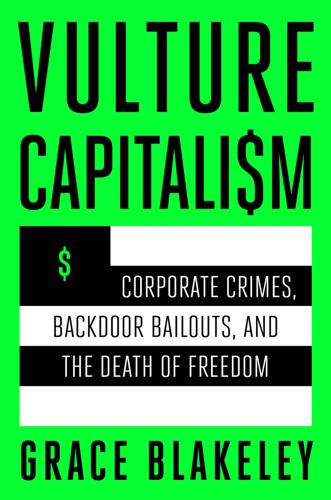
Vulture Capitalism: Corporate Crimes, Backdoor Bailouts, and the Death of Freedom
by
Grace Blakeley
Published 11 Mar 2024
The elite would have to be trained in the art of repressing democracy and building a strong and powerful state, while the masses would be fed lines about “rolling back the nanny state” and “freedom to choose.”112 For some, such as Hayek himself, this “double truth” was a necessary evil that resulted from the difficult interaction between elegant neoliberal theory and the real, messy world of capitalist political economy.113 For others, the neoliberal project, while framed as a project that aimed to deliver freedom, was always nothing more than a naked assertion of the power of capital.114 The lie at the heart of neoliberalism, despite having been debunked decades ago, retains huge sway over our politics. The idea that markets are “clean” and efficient is, as Wolfgang Streeck puts it, “propagated with remarkable success particularly by the economics profession, despite what is known about cartels, price agreement, ‘bank rescues’ etc.”115 Neoliberal politicians will still claim they seek to shrink the state and create space for a free market, yet upon entering office they proceed to distribute public cash to private corporations, promulgate regulation that enriches vested interests, and violently repress all those who stand in their way.
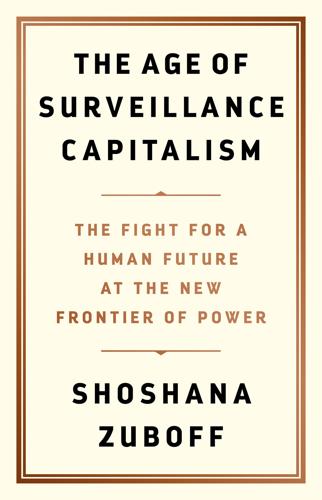
The Age of Surveillance Capitalism
by
Shoshana Zuboff
Published 15 Jan 2019
(Oxford: Oxford University Press, 2013); Erik Olin Wright, Envisioning Real Utopias (London: Verso, 2010); Naomi Klein, This Changes Everything: Capitalism Vs. the Climate (New York: Simon & Schuster, 2015); Wendy Brown, Edgework: Critical Essays on Knowledge and Politics (Princeton, NJ: Princeton University Press, 2005); Davis, Managed by the Markets; Wolfgang Streeck, “On the Dismal Future of Capitalism,” Socio-Economic Review 14, no. 1 (2016): 164–70; Craig Calhoun, “The Future of Capitalism,” Socio-Economic Review 14, no. 1 (2016): 171–76; Polly Toynbee, “Unfettered Capitalism Eats Itself,” Socio-Economic Review 14, no. 1 (2016): 176–79; Amitai Etzioni, “The Next Industrial Revolution Calls for a Different Economic System,” Socio-Economic Review 14, no. 1 (2016): 179–83. 65.